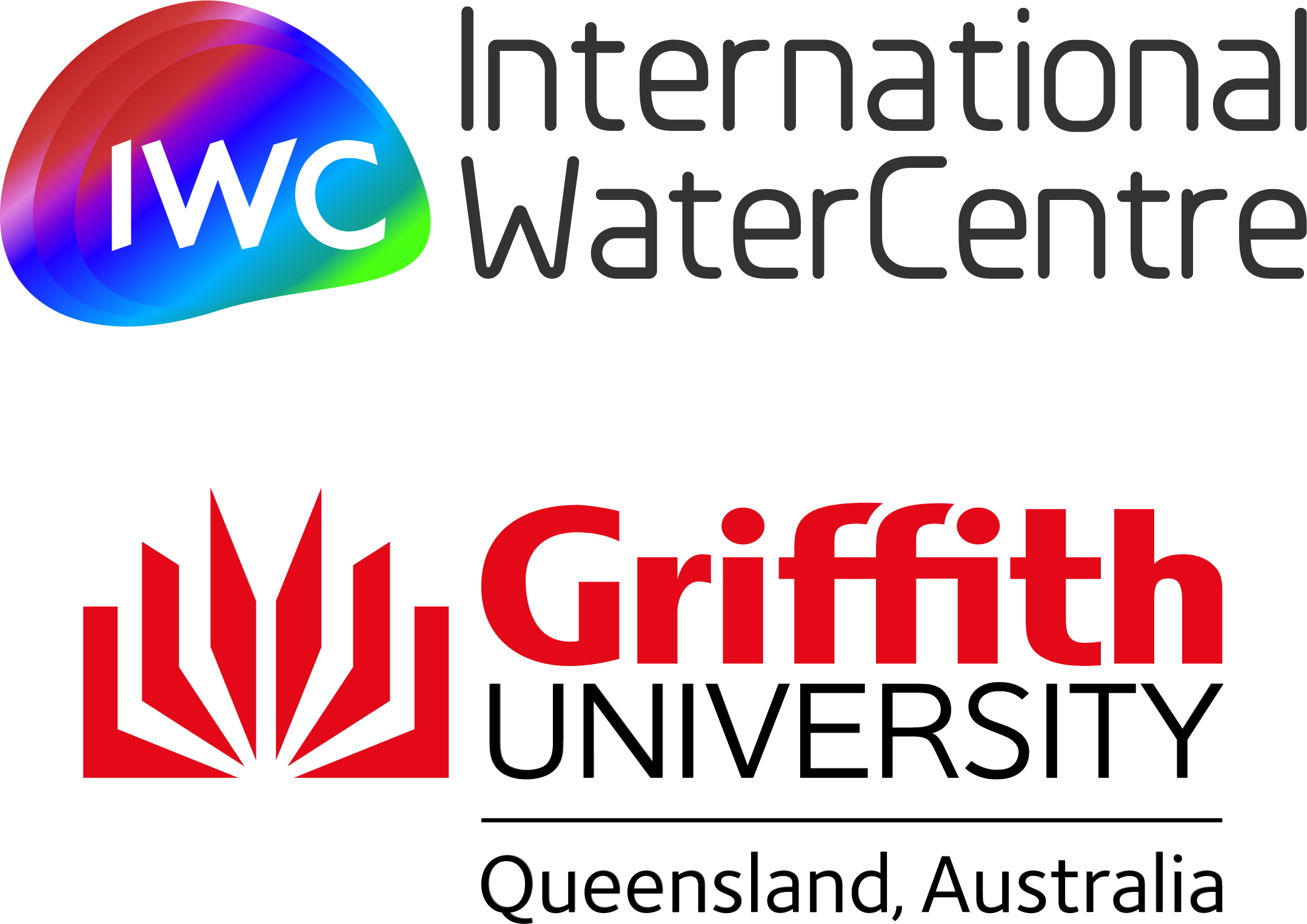During the WASH and COVID-19 Pandemic Virtual Symposium, SNV is convening a workshop on COVID-19 and sanitation workers on the frontline.
Even before the COVID-19 pandemic sanitation workers faced hazardous and precarious working conditions. With positive increases in people’s access to sanitation, the number of sanitation workers meeting the demand for pit emptying and disposal has been on the rise. However, conditions for workers remain difficult[1]. Sanitation workers often operate in the informal sector, hardly with any protection from authorities. Often emptying is done in the early hours of the day to not disturb people. In some countries, pit emptiers experience shame and stigma[2] from the very communities they serve.
With the emergence of the COVID-19 pandemic, many sanitation workers had to stay at home. In addition, with so many people staying at home, pits were been filling up more rapidly. Due to restrictions, sanitation workers were not allowed to go and empty them. They were not considered as “frontline workers”, and so they were not found in the priority categories for vaccinations.
Now as the pandemic continues, to ensure safely managed sanitation services it is all the more pressing to further improve the working environment of sanitation workers.
SNV and partners are convening a workshop to explore ways on how to safeguard the health and safety of sanitation workers.
Rajeev Munankami from SNV reflects, “at the start of COVID-19 there was a lot of focus on PPE (personal protective equipment), but PPEs were not comfortable, workers were not used to wearing these and several were not suitable for the local environment, many PPEs were designed for factory workers. We have observed that PPEs are not being used by sanitation workers”.
Further challenges identified by SNV include difficulties in sharing information about COVID-19 and limited or the absence of occupational health and safety (OH&S) protocols for sanitation workers.
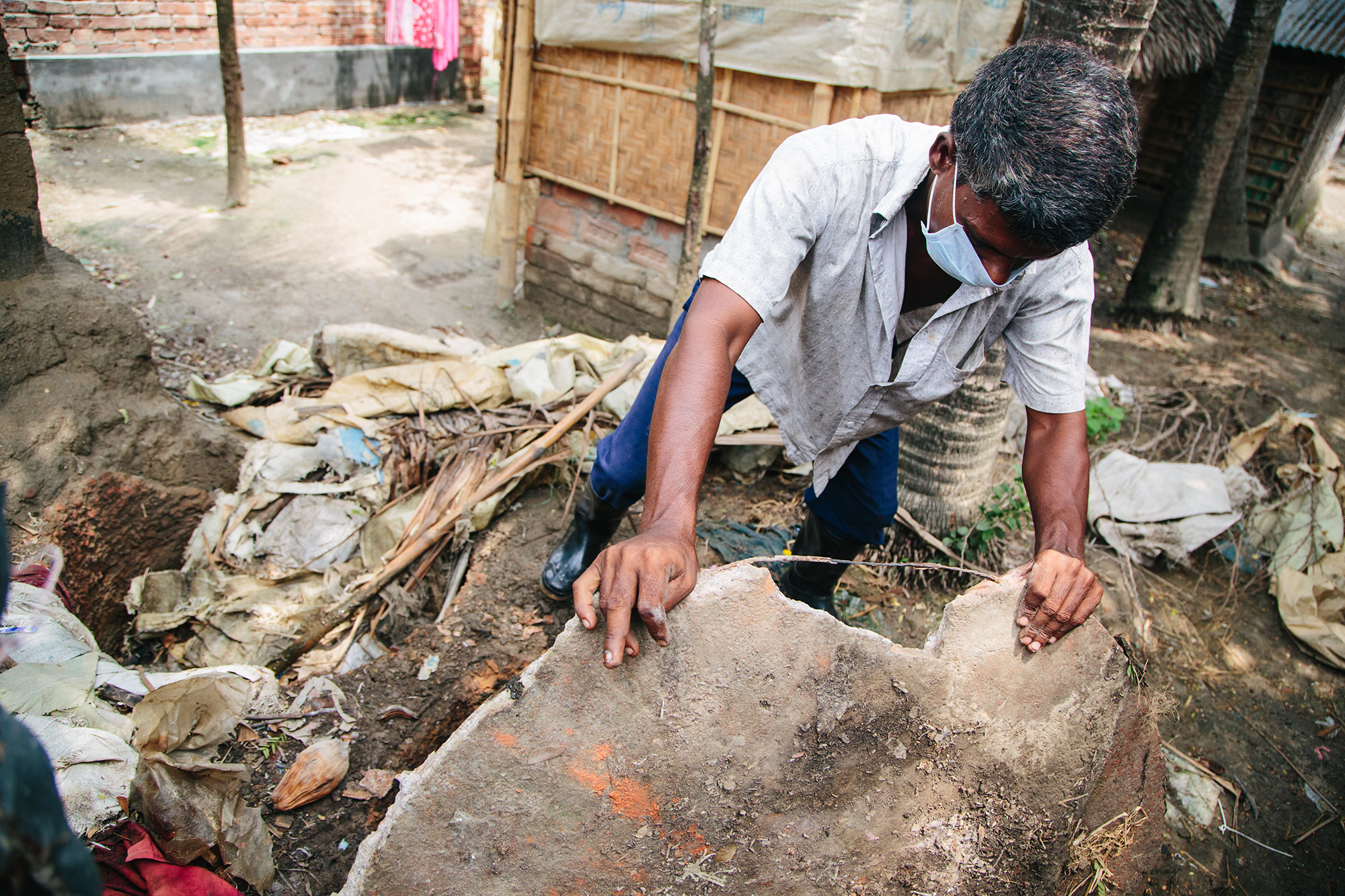
Sanitation Worker in Bangladesh; Photo Credit: SNV
Rajeev Munankami says “sanitation workers have lost their lives doing their job and often, this is considered an accident. They say that they understand the risks, but because of their economic situation they are not able to buy PPEs or afford vaccinations. In Nepal, Bangladesh and India, for example, some sanitation workers who enter into the containments, drink alcohol to rid themselves of the smell of the sludge.
Rajeev asked “How can we inform sanitation workers about the occupational and health hazards related to their profession? How can we support them through formal training?”
In 2020, SNV, World Bank, WaterAid and WHO initiated a global advocacy program to support inclusion of sanitation workers rights in government and civil society political agendas and also influence the WASH and labor sectors to ensure sanitation workers rights are mainstreamed in WASH sector implementation and monitoring. Recently a significant step towards making occupational health and safety a fundamental workers’ right has been taken at the ILO Governing Body. SNV believes that all these efforts need the leadership and support of national government.
During the workshop, the status of sanitation workers will be discussed and their contributions to public health made more visible. Research in Bangladesh on the impact of COVID-19 on sanitation workers will be presented and participants encouraged to reflect on their contexts. From Indonesia, experiences in the development and roll-out of Standard Operating Procedures (SOPs) for sanitation workers will be shared. The success of and lesson from Wai Municipal Council and the experiences of national advocacy network building in Bangladesh will be presented.
Important questions that will be collectively explored include:
- With an increased focus on PPE distribution, how can we ensure continuous supply and quality standards for the long term?
- How can we support sanitation frontline workers to keep cities clean? How do we ensure their safety, provide them with health insurance and OH&S training?
- How can we formalize databases of sanitation workers that captures the type of work they do (street cleaning, facial sludge, sewers etc) and present their risk profile?
- What are examples of best practices i.e. sanitation workers operating in good working conditions?
- How can we collaborate with other sectors in safeguarding the rights of sanitation workers?
- How can sanitation workers minimize their occupational health and safety risks and prepare themselves for future emergencies?
The COVID-19 and sanitation workers workshop will be held from 17:00-18:30 AEST on Wednesday 21 April 2021.
For more information click here.
The online symposium WASH & the COVID-19 Pandemic: Responses for recovery and resilience is a knowledge-sharing event of Water and WASH Futures. Water and WASH Futures is a partnership activity of the Australian Aid program and International WaterCentre; this symposium is delivered with the partnership of Water for Women Fund and Grand Challenges Canada. For more information, visit washfutures.com
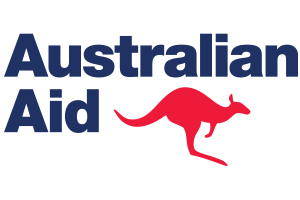
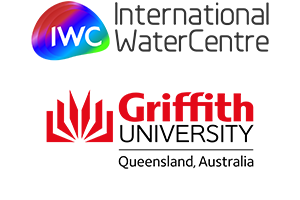
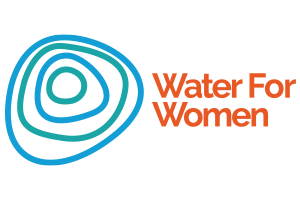
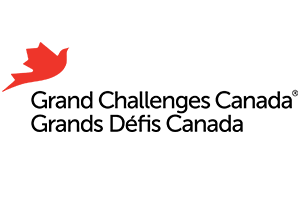
[1] World Bank blog (2019) available online https://blogs.worldbank.org/water/sanitation-workers
[2] SNV blog (2019) available online https://snv.org/update/making-living-should-not-have-cost-someones-life

